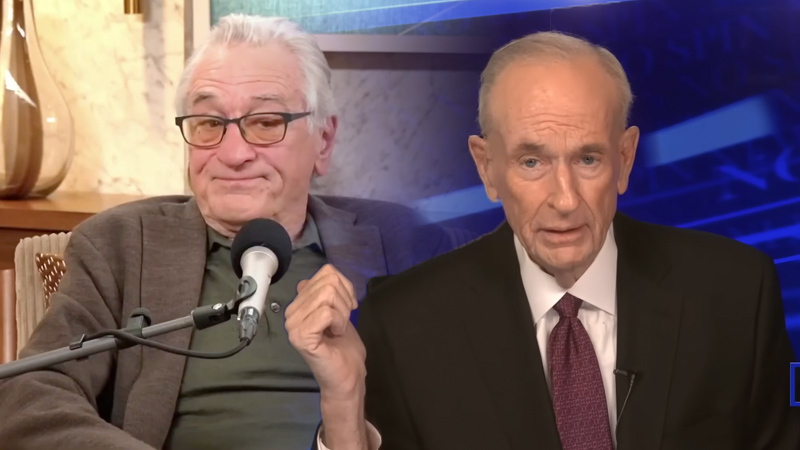
Michel Houellebecq’s novel Submission is essential reading for those seeking to understand the political situation in France today
“Tonight will go down in history,” he began, as they reported the first returns. The National Front was way ahead, with 34.1 per cent of the vote. That part was more or less expected. It was what the polls had said all month—Marine Le Pen had gained only a few points in the last weeks of the campaign. But behind her, the Socialists had 21.8 per cent and the Muslim Brotherhood 21.7 per cent—they were neck and neck. With such a slim margin, they could easily switch positions, and probably would several times before the night was over: so far only the polling stations in Paris and the other big cities had reported. With 12.1 per cent of the vote, the conservative Union for a Popular Movement was clearly out of the running…”
Michel Houellebecq is France’s greatest living novelist, by some margin. He’s also it’s greatest prophet, divining the future in his novels, again and again, with an astounding prescience.
In his 2001 novel Platform, for example, which follows the career of a Parisian civil servant who gives up his humdrum existence for a life of sex tourism in South-East Asia, Houellebecq predicted the end of Fukuyama’s “End of History” and the rise of militant Islam as a force on the world stage. As a group of jetski-riding jihadis disembark on a Thai beach and begin slaughtering Western tourists in the book’s shocking conclusion, the certainties of the liberal “unipolar moment”—the sense of triumphalism brought about by the fall of the Berlin Wall and the West’s historic defeat of communism—vaporise in a cloud of smoke. Platform was published exactly two weeks before the planes hit the Twin Towers.
Another example. In 2019, Houellebecq’s novel Serotonin, in its depiction of a violent revolt by France’s desperate farmers, seemed to predict the rise just a few months later of the Gilets Jeunes or “Yellow Vests” movement in France. The mass movement looked set to bring the Macron government down until COVID-19 intervened and made large gatherings impossible. Very convenient, that.
But it’s Houellebecq’s 2015 novel Submission that really hits home the hardest, especially today, less than 24 hours after the latest round of parliamentary elections in France. Submission is a book about the Islamicization of France and the French people’s own complicity in it, including the book’s protagonist, a mild-mannered university lecturer who lacks the courage to resist and finally, at the end of the book, comes to peace with his role in the new Muslim France. As if to make Houellebecq’s prophecy all the more chilling, the book was published on the very day of the Charlie Hebdo shootings, when Islamic gunmen stormed into the offices of a satirical magazine that had dared to ridicule Islam, and slaughtered 12 people and injured 11 others. One of Houellebcq’s friends was killed in the attack.
Submission isn’t just a description of what life in an Islamic France might be like. It’s also an examination of how it happened. France becomes an Islamic state, ruled by an explicitly Islamic government, because the country’s leftist parties and political establishment can’t bear to see the country handed over to Le Pen, despite the fact that her party wins the largest share of the popular vote in the latest election. To prevent a truly right-wing government, the socialist party enters into a coalition with France’s newly formed Muslim Brotherhood, and its leader, Mohammed Ben Abbes, becomes the leader of the country.
There is no civil war, although one is threatened at multiple times in the book. There is no real violence, apart from the brutalisation of French citizens by the “new French” imported from North Africa and the Middle East. In the end, France as we know it simply collapses through exhaustion, political corruption and the inevitable effects of demographic change as a result of mass immigration.
Nine years later, and two years after the date for the Islamic takeover given in the book, Houellebecq’s prediction about the future of French politics has effectively come true. There may not be a French Muslim Brotherhood—yet—or a Muslim president—yet—but the broad details are all there. Macron has handed over the French government to the hard left, whose agenda is in many respects—and certainly with regard to immigration and foreign affairs (i.e. Palestine)—Islamicist in nature.
For the sake of keeping Le Pen at bay, Macron will allow the pace of demographic change to intensify yet further, which of course will only make the French establishment’s Le Pen problem worse, at least in the short term. France’s new left-wing alliance has already put forward dozens of demands related to immigration, all of which will allow even more people to come to France legally, including so-called “climate refugees” fleeing climate change, and make it all-but-impossible to expel illegal immigrants and foreign criminals.
Houellebecq possesses no crystal ball. He simply understands the French political system and the true depth of the cravenness of the French establishment. He knows the establishment would do anything to prevent Le Pen winning: that they would make a deal with the devil himself—or, failing that, Mohammed. He knows that they will keep doing this, for as long as it takes.
Submission offers no easy answers to this problem. In fact, it offers no answers at all. The key is in the title: “submission”—the meaning of the term “Islam.” In one of the book’s most poignant moments, the protagonist’s Jewish girlfriend flees France for Israel, but the protagonist is left to lament that, as a European, “There is no Israel for me.”
At that’s left is acceptance.
Deal with it.
So far, the French right have not taken the defeat lying down. Former presidential candidate Eric Zemmour, leader of Reconquête (Reconquest), issued a defiant statement yesterday as the results came in.
“No despair! Starting tomorrow, the fight must continue!” he wrote on Twitter.
“This evening, I know that the disappointment of our people is immense. For the right, for France, for all those who care about their security, their freedom, their identity, for all those who want France to emerge from the terrible crisis into which Macron has plunged it, the result is bitter.
“France has spoken on the right and the government will probably be on the left. So, what can we say about all those politicians who have called for voting for the far left? What can we say about Macronism, which disgraced itself by allowing Islamo-leftism to score this evening? What can we say about these false right-wingers, all these artists, these footballers, who have improvised as directors of conscience against the interests of the French? We will remember it.
“Millions of French people voted for the right this evening, despite the injunctions of the media, despite the turmoil of politicians. This is great news, worthy of the patriotism of our people. These elections will also have had the merit of clarifying the confrontation between the right and left-wing Islamism, between those who want France to remain France and its enemies who dream of seeing it disappear.”
These are fine words. And the French should be hopeful.
One thing Houellebecq didn’t reckon with, because it seemed far less possible in 2015, before the Migrant Crisis, is a massive resurgence of the right across the entire continent, from Hungary to Italy, and even Germany and the UK. This is now taking definite shape. He also couldn’t have seen the stunning rise in popularity of right-wing parties among the younger generations. The anti-immigrant Alternative for Germany is now the most popular party among 18-30 year olds in Germany, and throughout the election French TikTok was awash with anti-immigrant videos and proud declarations of “Yes, I’m racist” by boys and girls who a few short years ago would have been hanging around the trendier parts of Paris taking artful photos of themselves for their style blogs.
Even so, Houellebecq diagnosed, with tremendous acuity, the French people’s predicament, caught between rapid demographic change and an elite that will prevent them from doing anything about it. The answer is not submission, but Submission is a good place to start.
Epstein Files Come At A Bad Time For The Elite




